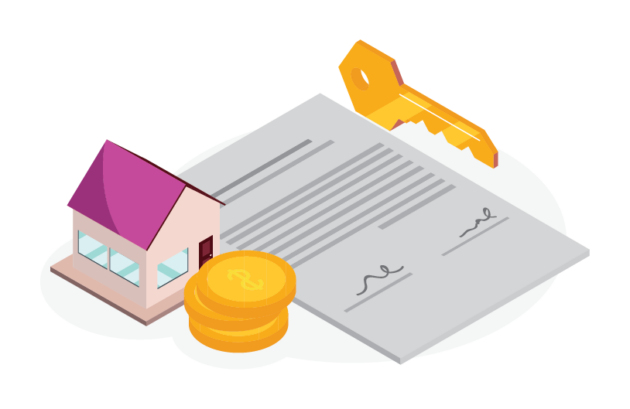
Privacy Policy
General
The Calgary Residential Rental Association respects the privacy of its members and non-members who use the products, programs or services provided by the Association.
The Association collects business contact information from its members and enters this information into the Association’s database. Non-members who give their permission may have their business contact information entered into the Association’s database.
We will not lease or sell any personal information to third parties. We will not release personal information to anyone who is not employed or contracted by us to provide a service to you, unless required by law.
We will only use this information to serve you better and, with your permission, will send you information
- about our products, programs, and services, or
- to respond to your inquiries about our offerings, or
- to offer you other products, programs or services that we believe may be of interest to you.
If you prefer not to receive this type of information in the future, just let us know by contacting us and we will take you off the notification and mailing list.
We produce a membership directory that is displayed in the member’s area of our website. This directory is available to any member in electronic format upon request. Members, subject to their permission as indicated on their membership form, have their business contact information, which includes their name, address, phone and fax numbers, listed in this directory. Members who no longer wish to be listed in this directory can contact us and we will remove them from the directory.
If a person chooses to submit an article for publication, we may publish the individual’s name, photo and business contact information.
The Calgary Residential Rental Association may contact an individual for the purpose of obtaining that person’s permission to collect information in order to profile them in an Association publication.
A request that the Association remove your personal or business contact information from the Association’s data base or website must be made in writing with proof of delivery to the Association (that could be via fax with confirmation, or a read receipt in email, etc).
Website – crra.ca
Due to the nature of the Internet, we are currently receiving certain technical information about your visit to crra.ca. This information does not identify you personally.
For all visitors to crra.ca
During your visit to crra.ca, our site notes:
- the internet domain and internet protocol address from which you access our website
- the type of browser and operating system used to access our site
- the date and time you access our site
- if you were referred to crra.ca by another website, the name of that website
- the pages you visit on crra.ca
- and if you link to crra.ca from another website, the address of that website
None of the data we collect in this way contains any personal information about you.
We use this information for statistical purposes and to help us provide the best possible website presentation to our visitors.
For visitors who volunteer information via our on-line Membership and Registrations forms
Along with the information gathered as described previously in the section titled “For all visitors to crra.ca,” we also receive any information you may enter via this website’s voluntary on-line forms. We use the information gathered from the on-line form you submit to us to process your registration or membership application.
We treat what we learn about our Visitors as confidential and we do not sell, lease or provide this information to any other company, person or agency unless required by law.
For visitors who contact us via email
If you choose to contact the Calgary Residential Rental Association by electronic mail, the information you send to us will be used only for the purposes described in your message. Due to the nature of the Internet and the World Wide Web, we cannot assure the security of information transmitted over the internet by electronic mail.
Please be advised that using electronic mail is less secure than using the registration and membership forms found on the Calgary Residential Rental Association website.
If you are concerned about sending personal information such as your credit card number or your home phone number and address over the Internet via email, we suggest that you send the information to the
Calgary Residential Rental Association by using our secure on line registration or membership forms; or by using fax or regular mail; or by contacting the Calgary Residential Rental Association by telephone.
For website and privacy security purposes, and to ensure that this website remains available to all users, crra.ca employs software programs to monitor network traffic and identify unauthorized attempts to upload or change information, or otherwise cause damage.
Contact Information
If you have questions or concerns about this policy or any issues relating to the privacy of your own personal information with regards to this policy, contact:
Calgary Residential Rental Association
4653 Macleod Trail SW
Calgary AB T2G 0A6
Tel: 403.265.6055
Fax: 403.265.9696
Payment, Invoicing & Refund Policy
Payments
New membership dues may be paid with Visa, MasterCard, Debit or cash. Cheques will not be accepted for new membership applications.
Cheques will not be accepted from persons/companies who have issued cheques to the CRRA in the past that have not cleared, regardless of the issue.
The CRRA accepts Visa, MasterCard, Debit and Cash for form sales. Cheques will not be accepted for the payment of forms sales.
Invoicing
All invoices issued by the CRRA must be paid within 30 days of the invoice issue date. Failure to do so may cause the invoice to be canceled and any items in the invoice will be released and future invoicing may not be available.
Invoices will not be provided if the course, event or sponsorship is within 30 days of the request.
The following will not be invoiced:
- Membership
- Seminars & Luncheon
- Form Sales
Refunds
Membership
All memberships are subject to approval by the CRRA.
A person who submits an application for membership that is not approved will be advised and no reason will be provided. If a membership fee was provided to the CRRA it will be returned in full.
If a member withdraws from membership during the membership year, no refund of the membership fee will be made.
If a member is suspended, or has their membership terminated pursuant to the CRRA's bylaws, no refund of the membership fee will be made.
Luncheons and Seminars
A person who has registered and paid to attend a luncheon or seminar hosted by the CRRA may cancel and receive a full refund, if the cancellation is made two weeks or more prior to the date of the luncheon or seminar.
If a person registered for a luncheon and seminar but is unable to attend and advises the CRRA of this more than one week out from the event, they may defer the registration to a later luncheon and seminar within the same calendar year.
No refunds will be made less than two weeks prior to the date of the luncheon or seminar.
No refund will be made to any person who has registered and paid and who fails to attend the luncheon.
A member who has registered, but who has not paid, and who fails to attend the luncheon shall be invoiced for the price of the luncheon, where the CRRA actually incurs a cost as a result of the member's failing to pay and attend.
In the event a luncheon or seminar is cancelled, the Association will refund all registration fees that have been paid.
Courses
A person who has registered and paid to attend a course and who subsequently cancels and withdraws from the course shall be subject to a cancellation fee, which shall be applied as follows:
- Cancellation 30 days or more before the course shall result in a full refund minus a 10% Administration fee.
- Cancellation less than 30 days before the course shall result in no refund being made.
- The registration may be deferred to the following course in the same calendar year if the request is made 30 days before the course start date.
A person who has registered and paid to attend a course and who subsequently cancels and withdraws from the course may arrange for another person to attend the course in their place. The name and contact information of the replacement person must be provided to the Association. No refund will be provided.
Any person who has registered and paid and who fails to attend a course shall not be entitled to any form of refund.
No refund will be made once a course has commenced.
In the event a course is cancelled, the Association will refund all registration fees that have been paid.
Trade Show
A person or company whose exhibitor application form has been approved and who has paid the exhibitor fee and who subsequently cancels and withdraws as an exhibitor in the trade show shall be subject to a cancellation fee, which shall be applied as follows:
- Cancellation 60 days or more before the trade show shall result in a full refund minus a 10% Administration fee.
- Cancellation 30 to 60 days before the trade show shall result in a 50% refund.
- Cancellation less than 30 days before the trade show shall result in no refund being made.
No refund will be made to any exhibitor who fails to show up and occupy their booth.
In the event the trade show is cancelled, the CRRA will refund all registration fees that have been paid.
Golf Tournament
A person who has registered and paid to golf in the Association's golf tournament and who subsequently cancels and withdraws from attending and golfing in the golf tournament shall be subject to a cancellation fee, which shall be applied as follows:
- Cancellation 60 days or more before the golf tournament shall result in a full refund minus a 10% Administration fee.
- Cancellation 30 to 60 days before the golf tournament shall result in a 50% refund.
- Cancellation less than 30 days before the golf tournament shall result in no refund being made.
A person who has registered and paid and who subsequently cancels and withdraws from attending and golfing in the golf tournament may arrange for another person to attend and golf in their place. The name and contact information of the replacement golfer must be provided to the Association. No refund will be provided.
A person who has registered and paid and who fails to attend the golf tournament shall not be entitled to any form of refund.
Any person who has registered and has been invoiced, but who has not paid, and who fails to attend the golf tournament shall be required to pay the invoiced amount.
In the event the golf tournament is cancelled, the Association will refund all registration fees that have been paid.
Awards Ceremony
A person who has registered and paid to attend the awards ceremony and who subsequently cancels and withdraws from attending the awards ceremony shall be subject to a cancellation fee, which shall be applied as follows:
- Cancellation 30 days or more before the awards ceremony shall result in a full refund minus a 10% Administration fee.
- Cancellation 15- 30 days before the awards ceremony shall result in a 50% refund.
- Cancellation less than 15 days before the awards ceremony shall result in no refund being made.
A person who has registered and paid and who subsequently cancels and withdraws from attending the awards ceremony may arrange for another person to attend in their place. The name and contact information of the replacement person must be provided to the Association. No refund will be provided.
Any person who has registered and paid and who fails to attend the awards ceremony shall not be entitled to any form of refund.
A member who has registered and has been invoiced, but who has not paid, and who fails to attend the awards evening shall be required to pay the invoiced amount.
In the event the awards ceremony is cancelled, the Association will refund all registration fees that have been paid.
Terms & Conditions
Welcome to the website of the Calgary Residential Rental Association.
Use of this site is governed by the Terms and Conditions set forth. Please read these terms and conditions carefully before using this website. The information and materials provided by Calgary Residential Rental Association may be used for informational purposes only. By using, accessing or downloading materials from this website you agree to follow the terms and provisions as outlined in notice. You are encouraged to periodically visit this page to review the most current terms and conditions to which you are bound.
If you do not agree to these Terms of Use, please do not use this website or download material from it.
Disclaimer
The Calgary Residential Rental Association strives to provide you with useful, accurate, and timely information on this website. Accordingly, the Calgary Residential Rental Association has attempted to provide accurate information and materials on this website but assumes no responsibility for the accuracy and completeness of that information or materials. You should conduct your own due diligence and you are advised to seek independent professional advice – be it legal or otherwise, before acting upon or using any information contained in this website.
The Calgary Residential Rental Association may change the content of any information or materials available at this website, or the products described in them, at any time without notice.
However, the Calgary Residential Rental Association makes no commitment to update the information or materials on this website which, as a result, may be out of date.
Information and opinions expressed in newsletters or other forums are not necessarily those of Calgary Residential Rental Association.
Neither the Calgary Residential Rental Association, nor its officers, directors, or employees, are responsible or liable for any loss, damage (including, but not limited to, actual, consequential, or punitive), liability, claim, or other injury or cause related to or resulting from any information posted on Calgary Residential Rental Association’s website. The Calgary Residential Rental Association reserves the right to revise these terms and conditions at any time.
It is your responsibility to review this page from time to time to ensure compliance with the then-current terms and conditions because they will be binding on you.
In no event shall the Calgary Residential Rental Association be liable for any damages whatsoever (including, without limitation, indirect, special, consequential or incidental damages or those resulting from lost profits, lost data or business interruption) arising out of the use, inability to use, or the results of use of this website, any websites linked to this website, or the materials or information contained at any or all such websites, whether based on warranty, contract, tort or any other legal theory and whether or not advised of the possibility of such damages. If your use of the materials or information on this website results in the need for servicing, repair or correction of equipment or data, you assume all costs thereof.
Restrictions
You may view, download and copy information available on this website solely for your personal, non-commercial use. You may also use such information within your organization in connection with the support of Calgary Residential Rental Association’s products. As a condition of use, you agree not to modify or revise any of the material in any manner. No other use of the materials or information is authorized.
Ownership of Information and Materials
The information and any materials available on or from this website are the copyrighted works of the Calgary Residential Rental Association, and any unauthorized use of that information or materials may violate copyright, trademark and other laws. Any rights not expressly granted herein are reserved. All material available on this website or downloaded from this website remain the sole property of the Calgary Residential Rental Association.
Name and Logo Information
The Calgary Residential Rental Association’s name and logo may be used only with written permission from the Calgary Residential Rental Association. All other trademarks, brands and names on the website are the property of their respective owners.
Links to Other Websites
As a convenience and to make the Calgary Residential Rental Association website truly service oriented we have included links to useful sites on the Internet. These sites are owned and operated by third parties. The Calgary Residential Rental Association makes no representation and is not responsible for the availability of, or content located on or through, these third party sites. A third party link from the Calgary Residential Rental Association website is not an indication that the Calgary Residential Rental Association endorses the third party or its site, or that the Calgary Residential Rental Association has any affiliation with the third party or its hosting provider.
Feedback
All comments, feedback, information or materials submitted to the Calgary Residential Rental Association through or in association with this website shall be considered non-confidential and the Calgary Residential Rental Association’s property. By submitting such comments, information, feedback, or materials to the Calgary Residential Rental Association, you agree to a no-charge assignment to the Calgary Residential Rental Association of worldwide rights to use, copy, modify, display and distribute the submissions. The Calgary Residential Rental Association may use such comments, information or materials in any way it chooses in an unrestricted basis.
Governing Law
The terms and conditions as well as the use of this Internet site, including any order or purchase made through this internet site shall be governed by the laws of the province of Alberta and the laws of Canada applicable therein.
General Provisions
If any provision of this agreement is deemed void, unlawful or otherwise unenforceable for any reason, that provision shall be severed from this agreement and the remaining provisions of this agreement shall remain in force. This contains the entire agreement between you and the Calgary Residential Rental Association concerning your use of this website, and the agreement shall not be modified, except in writing, signed by both parties. If you have questions regarding the Calgary Residential Rental Association’s Terms of Use, please contact us. You may also review the Calgary Residential Rental Association’s Privacy Policy.
Calgary Residential Rental Association Code of Ethical Principles
The following Code of Ethical Principles has been adopted by the Board of Directors of the Calgary Residential Rental Association and is a condition of membership, forming part of the obligation of a member of the Calgary Residential Rental Association.
Any breach of the Code of Ethical Principles may result in the suspension or termination of membership.
- Members shall act in a manner that is consistent with the Calgary Residential Rental Association’s reputation in Calgary as a highly regarded, professional and principled organization that believes its members should treat owners and managers, service providers, tenants and others with courtesy, fairness and respect.
- Members have a fundamental responsibility to safeguard and advance the interests of the Calgary Residential Rental Association. This implies acting with trustworthiness, integrity and objectivity. This responsibility extends beyond a member’s own behaviour to the behaviour of colleagues, employees and other members of the Calgary Residential Rental Association.
- Members shall cooperate and extend the effectiveness of the Calgary Residential Rental Association by exchanging information and experiences, offering suggestions for improvements and encouraging research in matters affecting the residential rental industry.
- Members shall strive to continually upgrade their knowledge and skills through education and training in the areas in which they practice as professionals.
- Members shall honour the trust bestowed upon them by others.
- Members shall avoid conflicts of interest and shall carry on work in a manner that will enhance the image of their profession and the Calgary Residential Rental Association. This includes acting openly and fairly towards others in the practice of their profession.
- Members shall comply with all federal, provincial and municipal laws and regulations as they apply to their business and the residential rental industry.







































